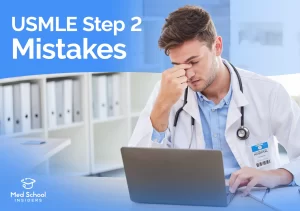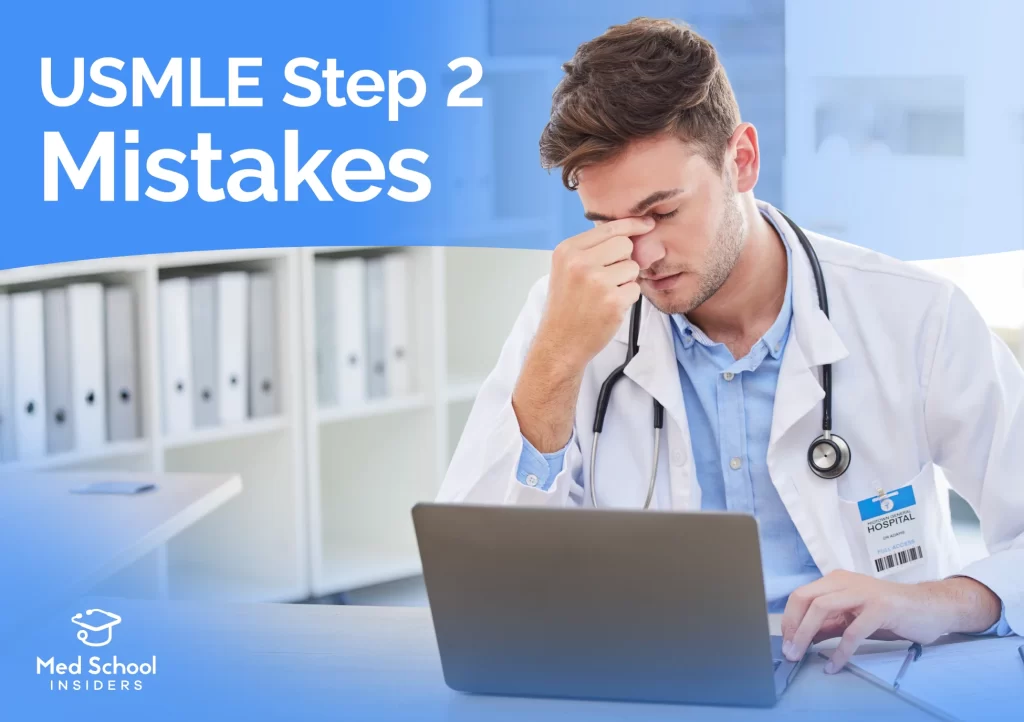Interviews are one of the major costs of applying to medical school. And out of all of the expenses, such as investing in one or more professional outfits, participating in mock interviews, etc., travel expenses add up the most.
You will very likely (and hopefully!) be invited to multiple interviews. The number of interviews you attend depends on the number of schools you apply to, the success of your application, and whether or not those schools hold virtual or in-person interviews.
With each new interview, the costs of interview season add up. And even if you can complete virtual interviews, as you make admissions decisions, you’ll want to visit the cities and campuses of the schools on your shortlist. Doing so will give you a better sense of what schools are the best fit for you and whether or not you could see yourself living in that city for 4 or more years.
Continue reading for our list of tips and travel tricks that will help you save money on the interview trail.
1. Avoid Last Minute Tickets

Buying last minute plane tickets is the most expensive way to travel. The sooner you can book your tickets, the better. You may want to delay finalizing your plans until you know for sure how many interviews you will be invited to, but it’s best to book your flights as soon as possible once you’ve scheduled an interview.
Don’t just book a ticket and hope for the best. There is a wide selection of travel apps and websites that can help you find the best and cheapest days to fly, such as Kiwi, Flightscanner or Kayak. If you’re unsure about scheduling back-to-back interviews, buy a one-way ticket to your interview and worry about the return trip later.
Since you know what schools you applied to, you’ll have an idea of where you might need to interview. Do some advance research into flight costs and travel options so that you’ll be able to book your tickets as soon as possible when interview invitations come through. You may be able to schedule interviews back-to-back to save costs or schedule interviews in the same areas around the same time.
Just be sure that you don’t over-schedule yourself. It’s imperative that you leave enough time in between your interviews to rest, reset, and refocus. You don’t want to arrive at an interview drained, sweaty, and not on your A-game.
But again, time is of the essence—don’t hold off too long on booking tickets and trying to coordinate your interviews back-to-back. Interview spots fill up fast. You don’t want to miss a chance at your top choice school because you’re waiting to hear from your second and third choices.
Curious about the most effective way to book your interviews? Here is An Ideal Strategy for How to Schedule Medical School Interviews.
2. Use Public Transportation
Use public transit whenever you can—ESPECIALLY to and from the airport. While it’s often easy to find a taxi, they’ll be a lot more expensive than a bus or subway. Airports are often located a good distance away from high-density areas because they’re quite large, and planes are very loud. That means a taxi ride will add up before long. Public transit can often get you quite close to where you want to go for a fraction of the cost—plus, you’ll get to see some sites along the way.
Taking public transit will give you a good feel for the places you may call home if you choose to attend medical school in that city. Odds are you’ll end up taking public transit quite a bit when you’re a medical student. When you’re on the bus or subway, reflect on how it feels. How safe do you feel? How reliable is the transit system? Are there any appealing restaurants, cafes, or shops along the way? Could it be home one day?
While the quality of the school you’ll be attending is paramount, it’s also important to reflect on its location. If you love the program but absolutely loathe the city it’s located in, think long and hard about whether or not you’ll be able to last.
Four years is a long time to live in a place you despise. Taking public transit will help show you what living in the city will be like, so do yourself a favor and do some preliminary, on-the-ground research—and save your money in the process!
Learn more: How to Decide Which Medical Schools to Apply to (12 Important Factors).
3. Share Expenses with Other Interviewers
Keep in touch with your current classmates and get to know other applicants. It’s very likely there are others in the same position as you who are also trying to cut down on expenses. Costs like taxis and accommodations can be shared to reduce your expenses—and you could make some life-long friends in the process!
After your interview day is over, chances are many applicants will head to the airport. If you can’t use public transportation, consider sharing an Uber, Lyft, or airport transfer with other applicants. This can help decrease the cost immensely.
As you may already know (after all, you’re one yourself!), medical students are some of the most fascinating and determined people on the planet. Get to know the people applying to the same program as you to see how well you get along. Do you share the same values and interests, or is there something that’s just not clicking for you? Why are they interested in attending the medical school you’re both interviewing at? Which specialty do they think they want to pursue in the future? Why do they want to be a physician?
Not only will teaming up and sharing expenses with other applicants save you money, but you’ll also be able to evaluate how well you fit in with the rest of the student body.
4. Pack Snacks and Avoid Airport Food

Airport prices for food and drink are hyper-inflated and border on ridiculous (the technical term is “highway robbery”), so do what you can to avoid them. If you plan accordingly, you can mitigate some of that cost. None of your flights across the US will be extremely long. To save money, plan your meals around your flights instead of buying an expensive meal at the airport.
Not only is airport and airplane food expensive, but it’s also widely known to be terrible—terrible tasting and terrible for you. The fast food options available to you are often loaded with hidden sugars, empty calories, and enough sodium and grease to clog your arteries before you can say “coronary artery bypass graft.”
While they may lessen your hunger pangs in the moment, they’ll cause you to crash within a few hours, or worse, send you running for the bathroom. Frantically climbing over the people in the seats next to you to reach the airplane toilet probably isn’t the image of dignity you’re trying to exude as a young professional and premed.
Packing your own healthy snacks will save you money and ensure your digestive system doesn’t get caught off guard by a food you’re unfamiliar with. So long as they follow flight regulations, you can bring snacks in your carry-on luggage. In general, that means no fresh products. Sealed snacks, such as nuts, granola bars, or crackers, can keep your hunger at bay and ensure you don’t spend money on mediocre food that’s terrible for you.
If you aren’t traveling by plane, your options become wide open. Pack a healthy lunch and snacks to enjoy on the road, such as a simple sandwich or salad, cheese and crackers, fruit, smoothies, veggies and hummus, and what have you. This will keep your expenses limited and ensure your body and mind are fueled by healthy ingredients when it comes time to interview.
5. Build Credit Card Points to Pay for Travel

Credit card debt is something to be wary of, but if you’re able to keep up with your monthly bills and pay your credit card off each month, take advantage of the points.
Using a card that offers points or a rewards program will add up over time, and you can use these points to offset travel expenses. As you approach interview season, use your credit card for expenses like buying a sharp, interview-appropriate outfit, paying for the MCAT, buying groceries, etc. Again, this will only work as long as you are able to manage your finances and pay for what you spend.
Do your research early on to find out which cards offer the best return. Some cards will offer notable reward points just for signing up, so pay attention to the latest deals. If you’re responsible with your money, credit card churning can be a great way to save money on travel.
6. Utilize Accommodation Sharing Programs
Accommodation sharing programs, such as Couchsurfing, enable you to travel cheaply by staying at the homes of fellow travelers. While not as luxurious or private as a hotel room or Airbnb, this option does help you meet some of the people you might be sharing a city with should you be accepted to the medical school you’re interviewing at. This could be a great way to get tips on good local cafes or restaurants, the best public transit routes, and so on.
For students interviewing with residency programs, Swap and Snooze is a website that verifies you are a 4th year medical student and then allows you to see other med students around the country who are willing to host applicants for free. Through this program, you can collect on-the-ground details about what the program you’re interviewing at is really like and get a feel for the kind of people you’ll be working with.
As always, take a close look at the reviews before you book.
Residency programs will also occasionally include a contact person within the program who has a list of residents willing to house applicants during interviews. Utilize this whenever you can, as residents are happy to have you, they can give you insider information on the program, and it’s a free place to stay!
Now, if you’re a shy person who is particular about their personal space, this option probably isn’t the one for you. While it’s important to push yourself outside of your comfort zone and meet new people, the night before your interview is not the time to try something new. It’s important to get in the right headspace before interview day, so do everything you can to ensure the accommodations you choose are comfortable.
Successful Interviews Begin with Preparation
Medical school and residency interviews are not the time to wing it. If you want to enter your interview feeling confident and leave it with flying colors, you need ample preparation, and by far, the best way to prepare is with the Med School Insiders Interview AI Course.
It will help you every step of the way, including dozens of comprehensive video modules and also interactive practice interview questions with instant AI feedback. It won’t just give you feedback on the content of what you say, but also how you say it. It’s truly cutting-edge, and you have to experience it to believe it.
You’ll have dozens of years of medical school admission committee experience on your side. Our team of top doctors, all with adcom experience, came together to build this course from the ground up to provide you with the ultimate resource to master the medical school interview.
The course includes everything you need to know, from scheduling interviews to making a cheat sheet to common pitfalls to how to address the most common questions. You’ll also see firsthand what to do and what not to do during a medical school interview from our video examples.
Sign up for our weekly newsletter to get our latest advice, guides, and videos sent straight to your email. We are always adding to our database of resources, and we continually update our content based on the most recent data, current deadlines, and changes to the application process.









